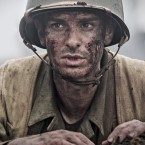Zemke
Matrix Hero

Posts: 642
Joined: 1/14/2003
From: Oklahoma
Status: offline

|
quote:
ORIGINAL: wpurdom
The fundamental problems of the game in terms of balance and 'realism' come from its nature and are inherent to its audience's desires and the asymmetric value of hindsight.
The game mechanics eliminate friction on your own side, getting rid of at least 1/3 of the reason no plan survives contact with the enemy. The ability to do repeat testing. You know what the combat value of your force is, and after some experimentation and repetition have an unduly precise idea of how combat operates. The detailed info about the mechanics and the ability to do repeated test games may eliminate another third. Battles have more of in common with a choreographed ballet, or at least a sports game, such as football, than they do of combat. Now the Germans, after two years of combat have a fair idea of what there forces could accomplish tactically and what the abilities of their commanders were. The Soviets, in contrast, don't have a clue except as to Zhukov and Timoshenko. Stalin thinks Voroshilov (sp?) is a great commander, and Rossokovsky has just been released from prison.
In the real world, once of Stalin's biggest concerns is the political collapse of his regime when face3d with defeats. He has no idea that Hitler will not even attempt to build on the wide-spread opposition among the subject nations and plans to starve to death 1/5 of the Soviet population. The game player has no political concerns, the VP system doesn't give a rational basis for standing and fighting. to duplicate the command side, one would have to randomize the command values of Soviet commanders and make their true values unknown except by performance until perhaps gradually unmaking them btween November 41 and June 42. Knowing the worth of commanders along with them having their full competence from the beginning are probably 2 big reasons the 1941 Red army fights more like the 1942 Red Army and the 1942 army fights like 1943.
The strategic insights from hindsight are almost all on the Soviet side. About the only thing the German picks up is go ahead and take Leningrad if you can, rather than relying on starvation (and maybe you can't take Moscow against a competent commander). The Soviet knows from the beginning that you can't form a solid defense before the rains, you should concentrate on avoiding encirclements (Kiev), December 1942 doesn't usually mark a complete turning point (there's a spring recovery coming) and you can't just keep on attacking willy-nilly regardless of losses, and you shouldn't put the cream of your army into a massive counter-attack in the spring (Kharkov) unless you've had remarkable success all through the winter. And to put a topping on the desert, the Soviet player has an exact understanding of the mechanics of creating elite formations, the German is stuck with the historical ones.
I get the impression that the mechanics of combat in this game are very ably modelled, but that does not mean one should expect historical results given the above factors - if the Germans are doing as well as the historical Germans then either the German commander is considerably superior or the mechanics are probably tilted ahistorically in the Axis direction.
But the grognards(sp?) who want this sort of game would, and myself to tell the truth, probably hate building the friction internal within your own army, and it would ruin the feel of authenticity to make the second best Soviet commander be General Slobin rather than a well-known historic commander. If you're going to balance the game while keeping the combat modelling as accurate as possible, then you probably need to look at the VP system or house rules.
I agree with the above. However I don't think leaders are the cause, rather the perfect hindsight both players have on what really happened. I am talking about PvP games NOT AI games. Also, messing with leader ratings kind of ruins the "role-playing" aspect that is a neat feature of the game.
I have said in other posts the VP system is the easiest method to force something different from the Russian human player. Currently, everything wpurdom said is true, there is no reason for Russia to fight for anything and they come out of 41 into 42 much stronger.
I am playing an experimental game with another player where Germany is set to 110 morale, with the thought that this would allow the Germans to get closer to historical advance rates. Frankly, German 110 morale did not have the results thought. The Germans are more effective in 41, and do get slightly further, but not excessively so. In 42 the Germans make up some lost ground and inflict a lot of losses on the Soviets. How this plays out into 43 we are not sure, as we are not into March of 43. Without a German Stalingrad, German manpower is pretty strong, and the 10 points of morale is a huge help.
So in 41 the Soviets don't suffer huge losses, no Keiv, it is only in 42 that the Germans were able to really hurt the Soviet side, forcing them to fight, as now retreating into the depths of Russia is not always going to work.
Anyway, the point is even a 110 morale increase for Germany does not solve the problem. I think one solution is changing the VP / Objectives to force the Russians to fight in 41 more often and perhaps boosting the German ability only in 1941 to get close to historical results. And yes I understand there will never be perfect historical results.
< Message edited by Zemke -- 10/28/2021 12:56:08 PM >
_____________________________
"Actions Speak Louder than Words"
|
 Printable Version
Printable Version



















 New Messages
New Messages No New Messages
No New Messages Hot Topic w/ New Messages
Hot Topic w/ New Messages Hot Topic w/o New Messages
Hot Topic w/o New Messages Locked w/ New Messages
Locked w/ New Messages Locked w/o New Messages
Locked w/o New Messages Post New Thread
Post New Thread